Search the Special Collections and Archives Portal
Search Results
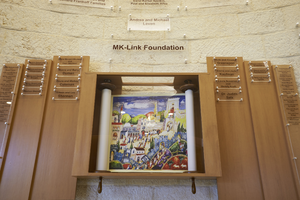
Photograph of Torah at Temple Sinai, Las Vegas (Nev.), October 04, 2016
Date
Archival Collection
Description
Jerusalem stone adorns a donor wall with a Torah display in the main foyer at Temple Sinai.
Image

Photograph of Torah at Temple Sinai, Las Vegas (Nev.), October 04, 2016
Date
Archival Collection
Description
Jerusalem stone adorns a donor wall with a Torah display in the main foyer at Temple Sinai.
Image
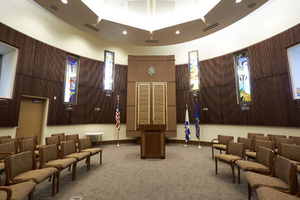
Photograph of Small sanctuary at Temple Sinai, Las Vegas (Nev.), October 04, 2016
Date
Archival Collection
Description
The small sanctuary at Temple Sinai.
Image
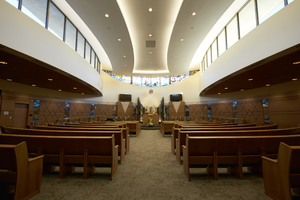
Photograph of Sanctuary at Temple Sinai, Las Vegas (Nev.), October 04, 2016
Date
Archival Collection
Description
The Linda and Dr. Lawrence Copeland Sanctuary at Temple Sinai.
Image
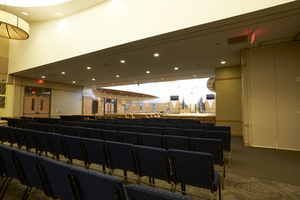
Photograph of Sanctuary at Temple Sinai, Las Vegas (Nev.), October 04, 2016
Date
Archival Collection
Description
The Linda and Dr. Lawrence Copeland Sanctuary at Temple Sinai.
Image
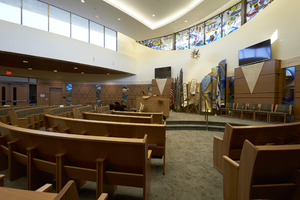
Photograph of Sanctuary at Temple Sinai, Las Vegas (Nev.), October 04, 2016
Date
Archival Collection
Description
The Linda and Dr. Lawrence Copeland Sanctuary at Temple Sinai.
Image
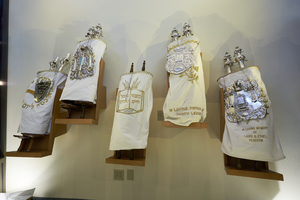
Photograph of Torah at Temple Sinai, Las Vegas (Nev.), October 04, 2016
Date
Archival Collection
Description
Torah on display in the Linda and Dr. Lawrence Copeland Sanctuary at Temple Sinai.
Image
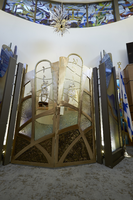
Photograph of Bimah at Temple Sinai, Las Vegas (Nev.), October 04, 2016
Date
Archival Collection
Description
The Bimah in the Linda and Dr. Lawrence Copeland Sanctuary at Temple Sinai.
Image
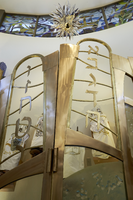
Photograph of Bimah at Temple Sinai, Las Vegas (Nev.), October 04, 2016
Date
Archival Collection
Description
The Bimah in the Linda and Dr. Lawrence Copeland Sanctuary at Temple Sinai.
Image
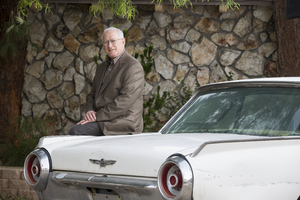
Photograph of Attorney John Wanderer, Las Vegas (Nev.), October 27, 2016
Date
Archival Collection
Description
Longtime Las Vegas resident and attorney John Wanderer poses with his 1963 Ford Thunderbird at his home.
Image
